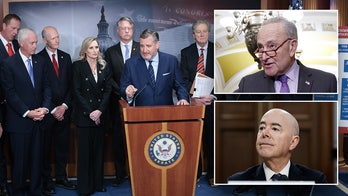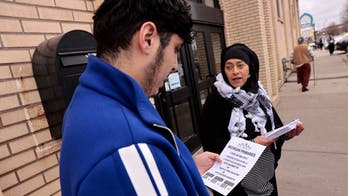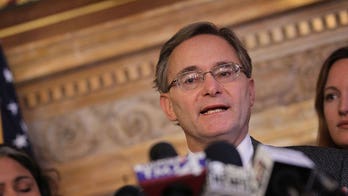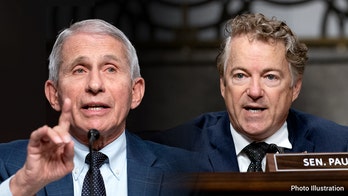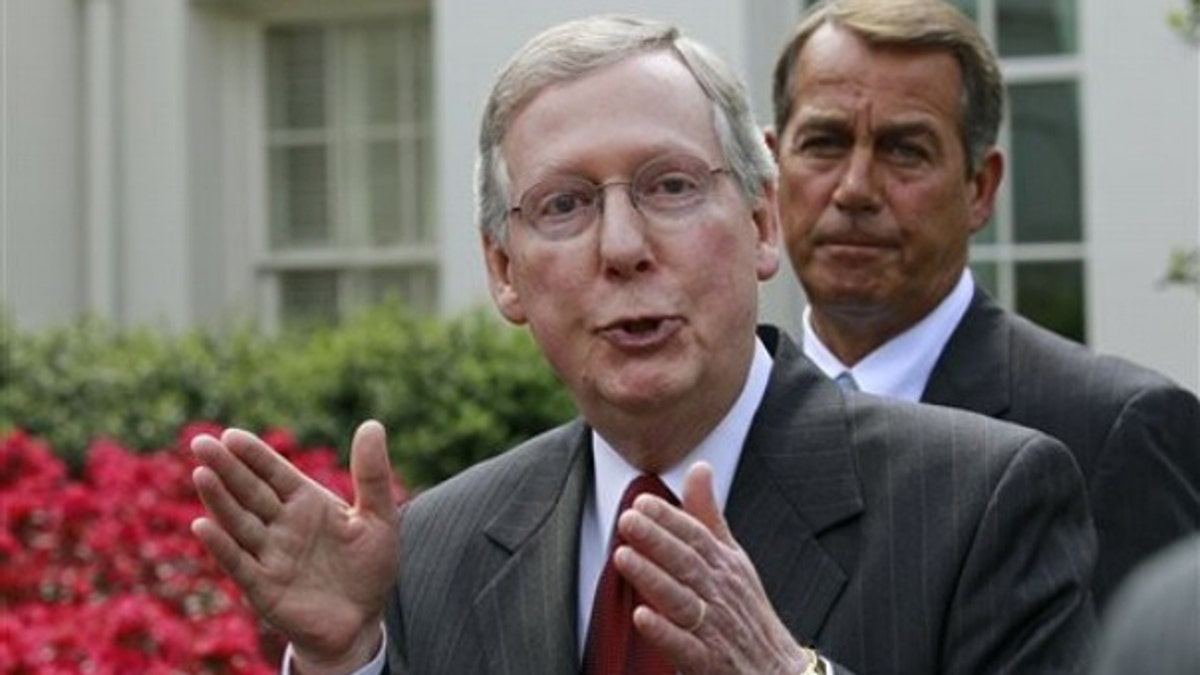
Senate Minority Leader Mitch McConnell, accompanied by House Minority Leader John Boehner, talks to reporters outside the White House April 14. (AP Photo)
Top Senate Republicans predicted their coalition will hold together to prevent a sweeping financial overhaul from reaching the Senate floor Monday, saying more needs to be done to make the package acceptable to their colleagues.
Senate Minority Leader Mitch McConnell told "Fox News Sunday" that key improvements need to be made to what he called a "partisan bill," warning that if those fixes are not achieved the package could have unintended consequences.
"It's my expectation that we will not go forward with this partisan bill tomorrow," McConnell said. "It's not ready yet. ... It is important to pass a good bill."
McConnell said that a $50 billion "bailout" fund in the bill has to be removed, creditors need to be treated more fairly and "enhanced capital requirements" need to be included to ensure the solvency of banks.
"We want to make sure that they don't have the same kind of approach on financial services that they did on health care," McConnell said.
Alabama Sen. Richard Shelby, in an interview with NBC's "Meet the Press," also predicted that all 41 GOP senators will vote to delay the start of debate on the bill unless talks lead to an agreement.
Shelby, the top Republican on the Senate Banking, Housing and Urban Affairs Committee and a lead negotiator, said he's not optimistic that will happen by Monday. But he and McConnell both predicted that continuing bipartisan talks should lead to a breakthrough.
"We don't have a bipartisan compromise yet, but I do think there's a good chance we're going to get it," McConnell said.
Senate Majority Leader Harry Reid has vowed to push forward with the bill, determined to either get enough Republican support to overcome delays or brand Republicans as obstructionists and handmaidens of Wall Street.
Reid and Banking Committee Chairman Christopher Dodd, D-Conn., need 60 votes to begin debate on the bill -- there are 59 Democrats and Democratic-allied independents.
Dodd said he hopes to get the necessary votes to move ahead on Monday. But he acknowledged that Democrats may not be able to peel away any GOP senator.
The House has already passed its version of the legislation. Both the House and Senate bills represent the broadest overhaul of Wall Street regulations since the Great Depression. They would create a mechanism for liquidating large firms, set up a council to detect systemwide financial threats, and establish a consumer protection agency to police lending. The legislation also would require derivatives, blamed for helping precipitate the meltdown, to be traded in open exchanges.
The Associated Press contributed to this report.

